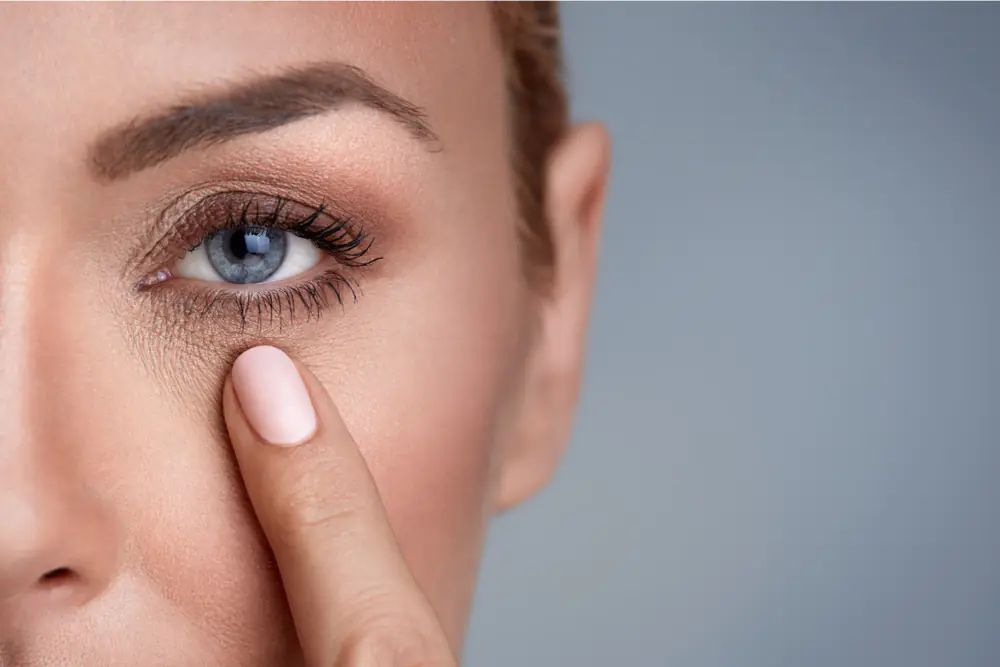Eye allergies—red, itchy, watery eyes that are bothered by the same irritants that cause sneezing and runny noses in seasonal allergy sufferers—are very common.
In addition to the symptoms of sneezing, stuffy and runny nose, most of these allergy sufferers also experience itchy eyes, watery eyes, red eyes and swollen eyelids. You can see more details here.
In some cases, eye allergies can also play a role in conjunctivitis (pink eye) and other eye infections.
If you think you have an eye allergy, here are a few things you should know, including helpful tips on how to get relief from your red, itchy, watery eyes.

What causes eye allergies
Allergens are usually harmless substances that cause problems in people prone to allergic reactions. The most common airborne allergens that cause eye allergies are pollen, mold, dust, and pet dander.
Eye allergies can also be caused by a reaction to certain cosmetics or eye drops, including artificial tears used to treat dry eyes, that contain preservatives.
Food allergies and allergic reactions to bee or other insect stings do not usually affect the eyes as much as airborne allergens.
Eye Allergy Relief
To get rid of eye allergies and itchy, watery eyes, you can do several approaches:
Avoid allergens.
The best approach to controlling eye allergy symptoms is to do your best to limit your exposure to common allergens that you know you are sensitive to.
For example, on days when pollen counts are high, stay indoors as much as possible, with the air conditioner running to filter the air. Use high-quality furnace filters that can capture common allergens and replace filters frequently.
When you go outside during allergy season, wear sunglasses to protect your eyes from pollen, ragweed, etc., and drive with your windows closed.
Delete your contacts.
Because the surface of contact lenses can attract and accumulate volatile allergens, consider wearing glasses instead of contacts during allergy season. Or consider switching to daily disposable contacts, which you discard after one use, to avoid the buildup of allergens and other debris on your lenses.
Often the best choice if allergies are bothering your eyes is to stop wearing contacts altogether—at least until all allergy symptoms have gone away. Additionally, wearing glasses with photochromic lenses can reduce light sensitivity associated with allergies and may help protect your eyes from airborne allergens.
Use eye drops.
Because eye allergies are so common, there are many brands of over-the-counter eye drops that are formulated to relieve itchy, red, and watery eyes caused by allergies.
If your eye allergy symptoms are relatively mild, over-the-counter eye drops for allergy relief may work very well for you and may be less expensive than prescription eye drops or other medications. Ask your eye doctor to recommend a brand you want to try.



